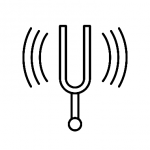Young, lively, mischievous and humorous Ella sings to the accompaniment of Chick Web — a beautiful foxtrot cocktail. Remastered in 1960 German Brunswick copied from 1930s Decca originals at 78 RPM. The tracks are sorted by year of release; note how much better the clarity of the 1934 “Don’t be that way” orchestra sounds than the recordings of the second half of the 1930s.
Author: Anton Stepichev
Ella Fitzgerald – Ella, 1960 LP mono
Collection of Ella in German Brunswick 1960. A couple of things are recorded very well —it is indicative Hi-Fi of the second half of the 1950s, clearly conveying the nuances of vocals and orchestra. In general, the adult Ella is not my type, but here everything turned out quite fresh, especially Robin’s nest.
Demis Roussos – Souvenirs, 1975 LP mono
Energophone-II Full Range take
The Souvenirs – a super hit of the maestro and a decent record!, Action lady – the orchestra is mixed competently and in a variety way beautifully, but the voice is tortured by overdubs. “Midnight Is the Time I Need You” – is a good one., “Names” – skillfully combined from pieces and based on The Shadow of Your Smile. A good sounding pop orchestra as a big plus.
Demis Roussos – Forever and Ever, 1973 LP mono
Characteristic of the transistor 1970s is a dirty mid-range and a lot of compression in an attempt to correct the lack of clarity of the sound. The situation is leveled by the good bass and drums of When I’m a Kid and, of course, the unusual vocal of the young “Pop Pavarotti”, who pulls out the blurred tracks Goodbye my Love and Forever and Ever, which once became hits despite the thorough efforts of sound engineers.
Continue reading “Demis Roussos – Forever and Ever, 1973 LP mono”
Nat King Cole trio, 1951 mono LP
NEW – Energophone take – 01-03-2020
Lo-Fi, audiophile recording. King Cole’s vocals and grand piano are beautiful, the swing feeling is amazing: perfect pauses, accents, intonations. Many of these nuances would not be available on records if it weren’t for the gorgeous, live Capitol studio of the 1940s and its sound engeneers.
Nat King Cole – Jazz Classics, 1972 mono LP
It is a rare case when the remastered recordings of the 1940s, made on the equipment of the 1970s, turn out to be quite listenable. Thanks to Capitol sound engineers, Nat King Cole swings and burns the jazz out!
Continue reading “Nat King Cole – Jazz Classics, 1972 mono LP”
Doris Day with Harry James, 1950 mono LP
Harry James liked to have a lot of notes in his solos, but he often forgot to make sense of them. The sound of his trumpet is harsh, and the accompanist is not very good, at least not on this disc. There is an exception – Limehouse blues with his muffled trumpet solo.
The recording for 1950 is not quite successful, Day’s voice is somewhat clamped, but Day’s sexy intonations are almost completely preserved, the muffled trumpet sounds are dense and energetic.
Sinatra – songs for swinging lovers, 1956 mono LP
NEW – Energophone take – 01-03-2020
A characterized recording of the mid-1950s, which no longer conveys the integrity and warmth of the Capital 1940s, but is still pleasant and quite musical. The orchestra is neat, sounds somewhat detached, and Sinatra’s baritone creates an atmosphere where everything looks expensive and lush.
Continue reading “Sinatra – songs for swinging lovers, 1956 mono LP”
Macromedia mp3 encoder for Mac Classic

Lionel Hampton sextet, 1951 mono LP
Lo-Fi, audiophile recording. Reissue of 1951, 10 ‘ English Brunswick LP from 78 rpm Decca originals of 1940s. A surprisingly pleasant record in the atmosphere, Hampton is not a virtuoso, but a vibraphone poet, what a touching version of “Time on my hands”he has! The sextet is excellent, no one interferes with the soloist, as is often the case in democratic jazz.
